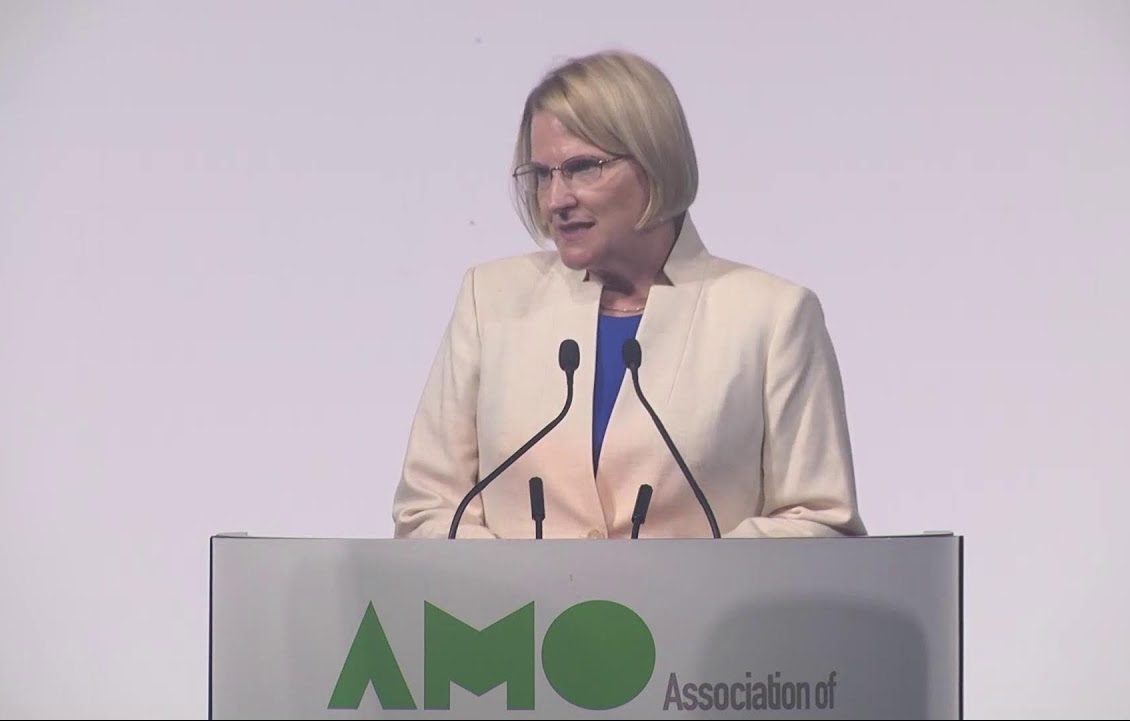Province’s new addiction ‘hub’ model will ‘turn the clock back 20 years’ – Oshawa councillor
Published August 23, 2024 at 10:14 am

The provincial government’s decision to ban safe injection sites close to schools and child care centres and transition to an addiction recovery model will “turn the clock back 20 years” on addiction services, said an Oshawa councillor who spent six years on the board of a downtown homelessness services hub.
The Doug Ford government will be closing ten consumption and treatment services sites – including one in Hamilton and five in Toronto – and introducing more addiction recovery supports and treatment hubs as part of its new plan to deal the rise in addiction and homelessness in Ontario cities and towns.
Derek Giberson, who served as president of the Back Door Mission during the pandemic years and witnessed the rise of people experiencing urban poverty, homelessness and addiction and mental health challenges, said the government’s approach to addiction is not the right path going forward, noting the announcement at this week’s Association of Municipalities of Ontario conference in Ottawa by Health Minister Sylvia Jones “didn’t get the rousing reception they might have been expecting” from the 2,000 delegates in the room.
“It took over five years of advocacy to get them to do something that everyone has been asking for – more recovery and treatment services – and in the same breath they took away other services that are evidence-based and proven to help people reach those recovery and treatment resources,” Giberson said on his return from Ottawa. “They’ve turned back the clock 20 years on addiction services in this province, and narrowed the future options for cities like Oshawa that may need other tools down the road that don’t currently exist in their communities.”
Oshawa almost became home to a consumption and treatment services site in 2019, with Lakeridge Health and the Region of Durham preparing to recommend to the Province a site at Midtown Mall, just west of downtown.
The motion lost at Oshawa Council by a narrow 6-5 vote.

Oshawa Councillor Derek Giberson
The Province introduced the consumption and treatment services model in 2018 as a way to move away from supervised consumption and better connect people to treatment.
A series of reviews of the rest of Ontario’s safe injection sites are been completed but Jones said those results are a few weeks away from being released.
The reviews kicked off after Karolina Huebner-Makurat was killed by a stray bullet fired outside of the safe injection site at the South Riverdale Community Health Centre in Toronto’s Leslieville neighbourhood, with Ford vowing to stop it from ever happening again.
The South Riverdale site is one of the five safe injection sites in Toronto being closed under the new rules.
The Toronto-based Canadian Association of Mental Health (CAMH) also chimed in on the announcement, calling the supervised consumption and needle exchange programs “essential” healthcare services.
“They are a necessary part of a comprehensive response to the drug toxicity crisis,” CAMH said in a social media response, adding that they are “evidence-based and life-saving interventions” that are known to reduce the incidence of fatal overdoses and help reduce the transmission of HIV, hepatitis C, and other blood-borne infections, and increase referrals to treatment. “The loss of supervised consumption sites and needle exchange programs will cause harm to people and communities across the province and put pressure on other parts of the health care system, including already busy emergency departments and emergency medical services.”
“We hope the Ontario government will maintain these services as a part of its new hub model.”
Replacing the sites will be new recovery and treatment facilities known as Homelessness and Addiction Recovery Treatment (HART) Hubs.
The province will spend $378 million on the new hubs which may include primary care, mental health services, addiction care and support, social services and employment support, shelter and transition beds and supportive housing.
The locations of the new hubs were not disclosed.
“Communities, parents and families across Ontario have made it clear that the presence of consumption sites near schools and daycares is leading to serious safety problems,” Jones said in explaining her government’s rationale, though less than one in 10 opioid-related overdose deaths in Ontario occurred where there was a supervised injection site.
“We need to do more to protect public safety, especially for young school children, while helping people get the treatment they need, which is why we’re taking the next step to expand access to a broad range of treatment and recovery services while keeping kids and communities safe.”
CAMH “welcomed” the government’s investment in housing and addiction treatment hubs, with the hope the money will be used to “improve access to treatment and implement novel approaches that meet people where they are.”

Backdoor Mission, Oshawa





